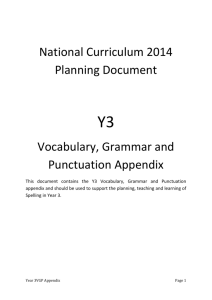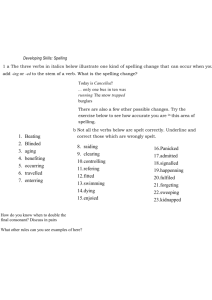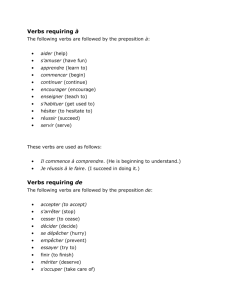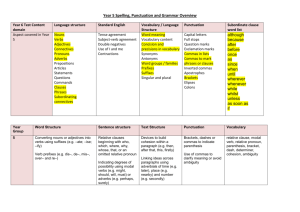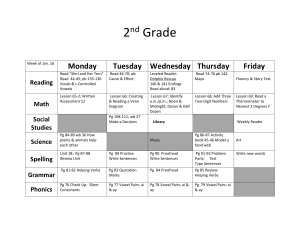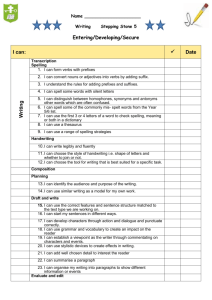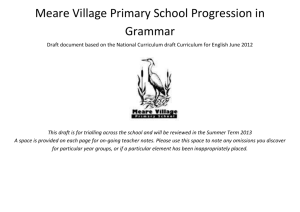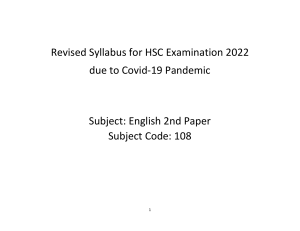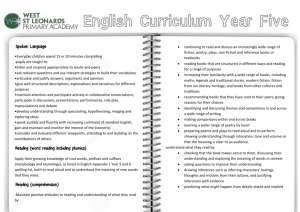Progression Guidance: Grammatical Knowledge through the
advertisement
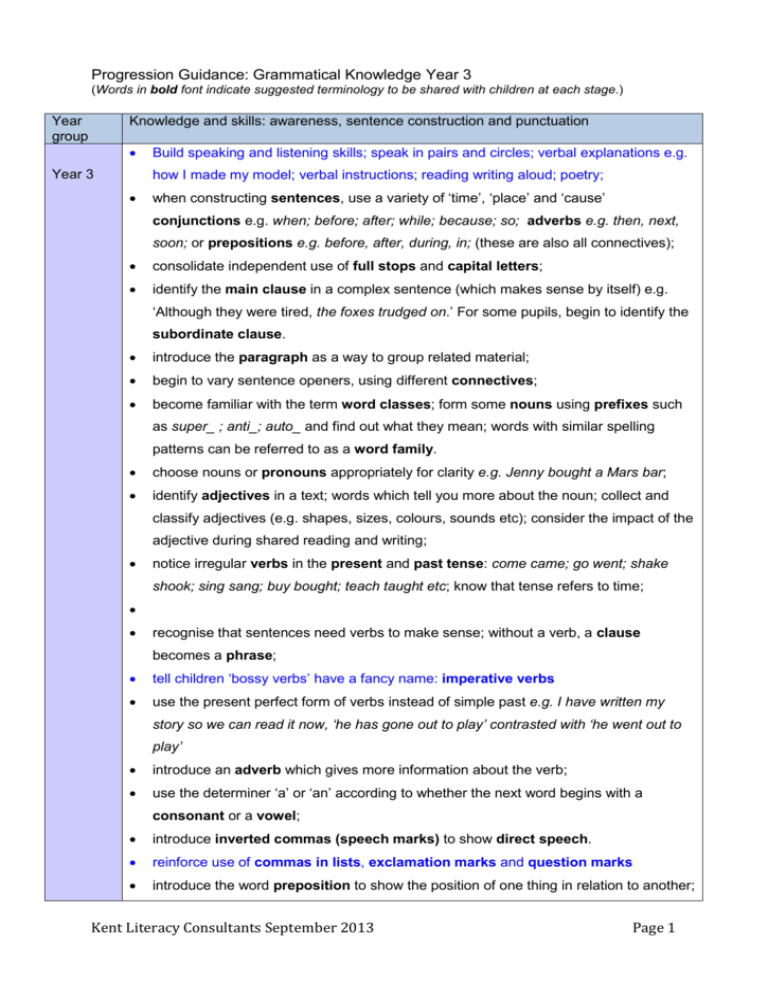
Progression Guidance: Grammatical Knowledge Year 3 (Words in bold font indicate suggested terminology to be shared with children at each stage.) Year group Knowledge and skills: awareness, sentence construction and punctuation Year 3 Build speaking and listening skills; speak in pairs and circles; verbal explanations e.g. how I made my model; verbal instructions; reading writing aloud; poetry; when constructing sentences, use a variety of ‘time’, ‘place’ and ‘cause’ conjunctions e.g. when; before; after; while; because; so; adverbs e.g. then, next, soon; or prepositions e.g. before, after, during, in; (these are also all connectives); consolidate independent use of full stops and capital letters; identify the main clause in a complex sentence (which makes sense by itself) e.g. ‘Although they were tired, the foxes trudged on.’ For some pupils, begin to identify the subordinate clause. introduce the paragraph as a way to group related material; begin to vary sentence openers, using different connectives; become familiar with the term word classes; form some nouns using prefixes such as super_ ; anti_; auto_ and find out what they mean; words with similar spelling patterns can be referred to as a word family. choose nouns or pronouns appropriately for clarity e.g. Jenny bought a Mars bar; identify adjectives in a text; words which tell you more about the noun; collect and classify adjectives (e.g. shapes, sizes, colours, sounds etc); consider the impact of the adjective during shared reading and writing; notice irregular verbs in the present and past tense: come came; go went; shake shook; sing sang; buy bought; teach taught etc; know that tense refers to time; recognise that sentences need verbs to make sense; without a verb, a clause becomes a phrase; tell children ‘bossy verbs’ have a fancy name: imperative verbs use the present perfect form of verbs instead of simple past e.g. I have written my story so we can read it now, ‘he has gone out to play’ contrasted with ‘he went out to play’ introduce an adverb which gives more information about the verb; use the determiner ‘a’ or ‘an’ according to whether the next word begins with a consonant or a vowel; introduce inverted commas (speech marks) to show direct speech. reinforce use of commas in lists, exclamation marks and question marks introduce the word preposition to show the position of one thing in relation to another; Kent Literacy Consultants September 2013 Page 1 play games to practise e.g. put the red triangle in front of the blue cube; learn to recognise and spell contractions: cannot, can’t; will not, won’t; etc introduce the words ‘omit; omission; possess; possession’; in readiness for teaching apostrophes continue to say the alphabet and to become confident with alphabetical order; use a dictionary to check meaning of words during reading Terminology for pupils: adverb, preposition, conjunction, word family, prefix, clause, subordinate clause, direct speech, consonant, consonant letter, vowel, vowel letter, inverted commas (speech marks) Kent Literacy Consultants September 2013 Page 2
